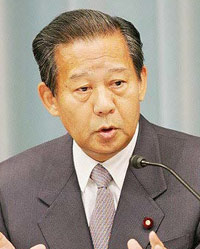Perkovich Blows Up the "Democratic Bomb" Doesn't Help Much on Fallout
George Perkovich, a Carnegie Endowment senior fellow, blasts the Bush White House's handling of WMD proliferation, urging the
Opponents of the dismal Bush foreign policy record must begin to link their overall proliferation strategies with clear steps to alleviating today's nuclear stand-offs.
If not progressives risk losing on foreign policy in '08, regardless of who wins the White House.
The report follows a mid-term election that has been seen as a rebuff to President Bush and his foreign policy of democratic regime change in
Perkovich calls the approach "risky," citing that "
Perkovich makes the case for universal rules to manage the numerous aspects WMD proliferation. Such a strategy demands that
His most potent arguments against selectively rewarding "good" states and "punishing" bad states, are also the most well-known: a) most states are "gray"--neither completely good nor bad-- and b) states change.
The unilateral, regime-centric approach undermines cooperation between the nuclear powers, according to Perkovich. Alienating or provoking Russia and China with nuclear deals to India or encouraging Japanese re-militarization breaks the ability of the world's great nuclear powers to work together to tackle worrisome proliferation--whether through sanctions or other diplomatic strategies.
The report offers little new, but does digestibly present the complicated issue of WMD proliferation. Only the charge to make nuclear proliferation an officially recognized international crime succeeds in spinning a new yarn on an old theme.
Yet the report fails to show how universal rules for proliferation get us to solve the nonproliferation regime's two great challenges:
And when it comes to picking policy makers, it will be those two pressing issues--not the wonkish issue of universal guidelines or selective strategy--that will define the '08 elections and the next White House's foreign policy.





